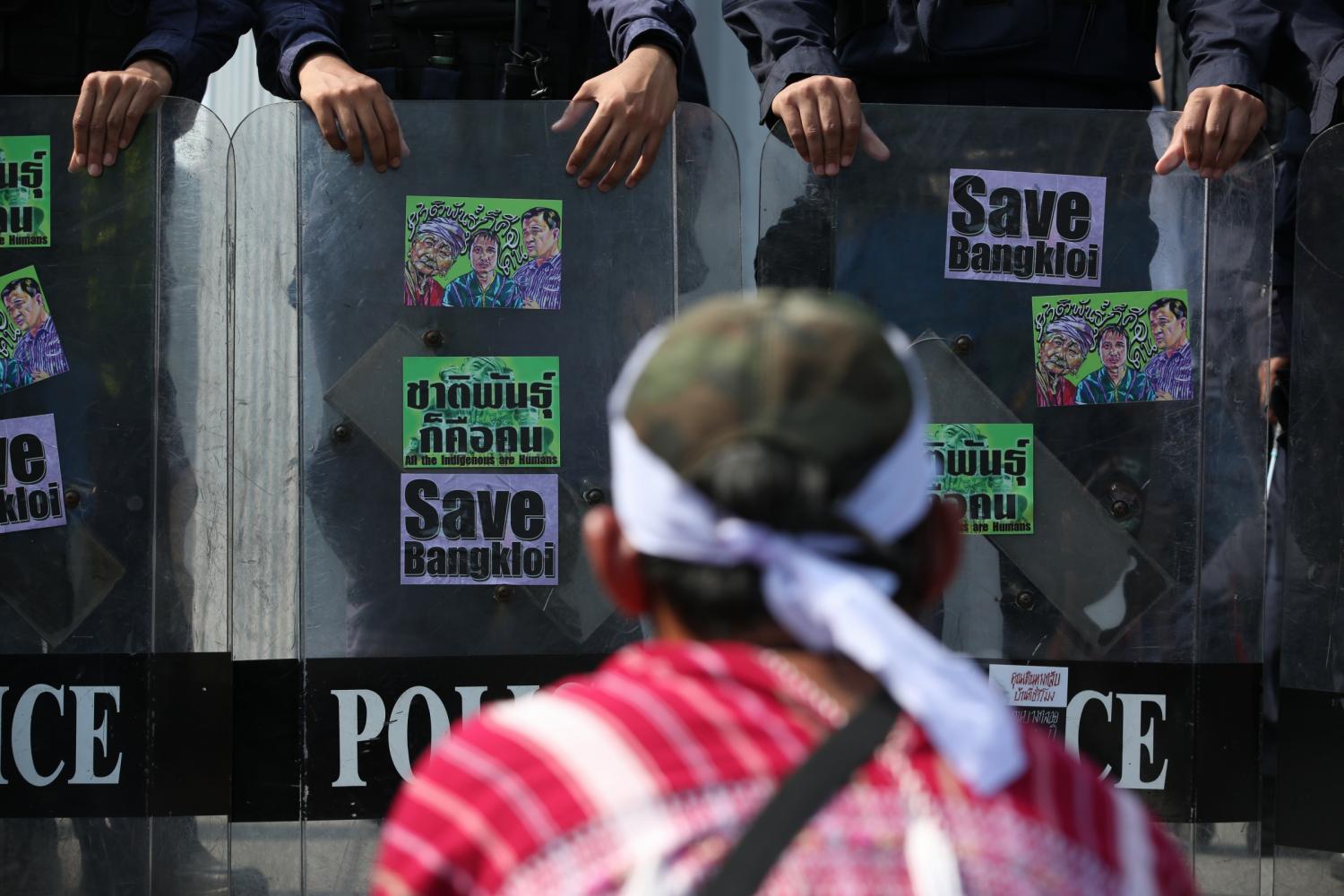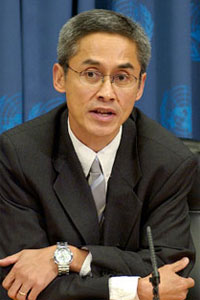
The term "rule of law" has a resonant ring which sounds both familiar and distant. It seems familiar because it is employed frequently by lawyers to analyse the makings of a legal system. Yet, it is distant because it sounds "legalese", harbouring both the thin version and the thick version of its intrinsic self. The thin version covers various legal safeguards for litigants and accused persons, such as a fair trial, accompanied by the advocacy of an independent judiciary. The thicker version demands more, namely: adherence to human rights and democracy.
The international trend witnessed by the global Rule of Law index regrettably indicates a decline in the rule of law, undermined impliedly by the spread of the "Law of Rule(r)s" of an authoritarian kind. It coincides with the reduced civic and political space witnessed in many parts of Asia-Pacific and elsewhere, as a disquieting contraction of the democratic landscape. It is thus timely for key stakeholders, jurists, and more to coalesce more assertively to strengthen various entry points to open up that space rather than to overlook the global warning of negative seepage inherent in the change of political climate. There are some gateways of note, namely: access to justice and judicial integrity-cum-independence.
With regard to access to justice, the challenge is to facilitate access by people to a variety of ways and means to claim their rights effectively and cost-effectively, with a view to redress and accountability. While access to the ordinary court system is important, that system is at times distant and out of reach for those who do not have the means and who do not have the power. Thus, other options, such as administrative courts, specialised courts, arbitration, mediation, and local dispute settlement mechanisms, are emerging. The spread of national human rights institutions, such as national human rights commissions, offers broad outreach to enable affected persons to resort to non-judicial alternatives; those institutions need to be independent of the executive branch and pluralistic in composition.
Interestingly, the Covid-19 pandemic has pressed for a more accessible system via technology, such as online links with the courts to clear the backlog of cases. A number of Asia-Pacific countries witnessed constructive developments on this front as a lesson learned during the pandemic. Yet, there is no room for complacency. There is also an inequitable online gap, aggravated by poverty and disparities worsened by the pandemic, which needs to be tackled. The overflow of inmates in the prisons of various countries, especially in pre-trial cases, is often a testament to the poor being affected more than the rich. Obviously, the former have less access to bail, which can help to divert them from the detention system pending trial. The situation is compounded by the fact that a retributive approach towards drugs-related cases pushes many into detention rather than towards rehabilitation. Political shackles imply that those dissenting against the top layer -- "ruler(s)" -- of the system are incarcerated all too readily by non-democratic regimes that seek to self-perpetuate.
Since justice is, in essence, a matter of leveraging with the power spectrum, checks and balances vis a vis ruling elites are essential, and a strong civil society, media, community-based/non-governmental organisations, and human rights defenders are all critical cogs in the wheels of justice in the face of the spools and spinners of political power.
There is then the issue of integrity and independence of the judiciary. This has to be understood against the political backdrop interfacing with judges and related personnel. In non-democracies and semi-democracies, members of the judiciary are highly unlikely to be independent of the executive branch or to embody a genuine sense of integrity, since they are more often than not compliant or subservient to you-know-who. An example of that trend was seen recently in a developing country where a local court (obviously coopted by the "ruler(s)") ordered the deputy leader of the main opposition party to pay not far off a million US dollars for defaming the ruling political party, which controls all the seats in the national parliament. The case may thus be called: Strategic Litigation against Political Participation (SLAPP) as a complement to the other well-known SLAPP used against human rights defenders, namely, Strategic Litigation against Public Participation (SLAPP). A major cause for concern should be the Double SLAPPS phenomenon!
Yet, advocacy and related activities are still needed to press for a quality-based judiciary. Much can be done to improve their selection, education, and training on human rights and democracy. Good remuneration helps to incentivise their work. Monitoring of the judiciary is also important to ensure a sense of transparency. Where there is self-regulation so that the judiciary vets itself, it has to ensure that it complies with international standards and is scrutinised against corruption and biased practices. A simple stipulation to prohibit them from sitting on the executive board of political parties may help to ensure that "judges are independent and are seen to be independent".
Nurturing empathy is key to enabling them to reach out mentally to victims and litigants. Revolving the judiciary to different areas of the country and enabling them to witness first-hand "how the other (deprived) half lives" helps to create more understanding of socio-economic and other conditions. Judicial education should involve visits to prisons and other detention locations to witness the real conditions beyond the courts. Gender sensibility also needs to be maximised in the capacity building of judges through practical, ground-related casework and exemplars from the very beginnings of judicial training. Inclusion of persons of different ethnicities, with disabilities, with gender-diversity, and with pluralistic backgrounds is key to building a judiciary that is at one with the community. Openness to critical analysis from others is another test for judicial transparency and this invites reform of contempt of court provisions in several countries which shield the judiciary excessively from fair comment and fair play.
